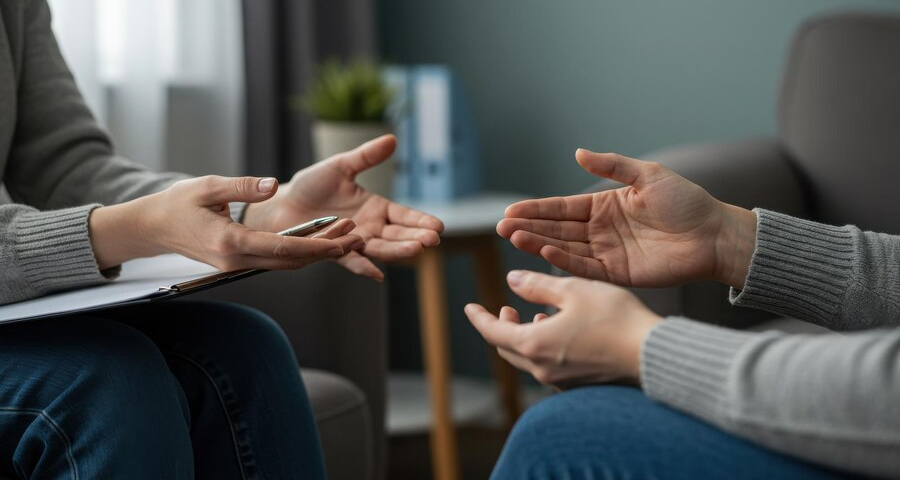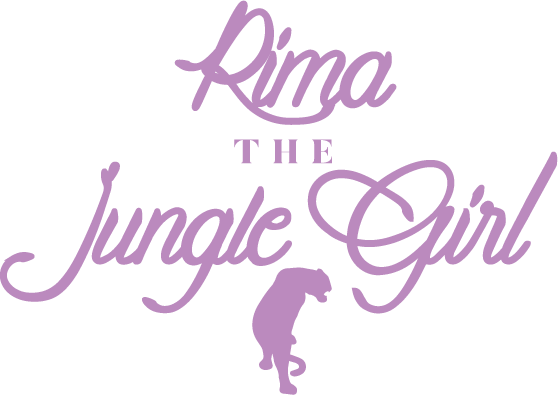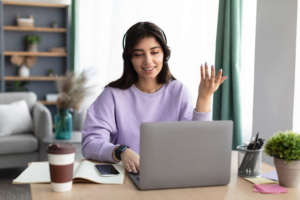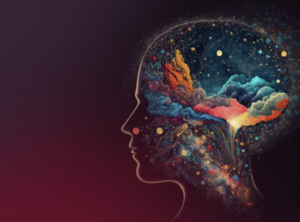
Psychotherapy Strategies for Creatives Looking to Overcome Mental Blocks
Table of Contents
Creatives often face periods of stagnation—when ideas are hard to come by, and inspiration seems out of reach. Mental blocks can affect anyone, from artists to writers to designers, but they don’t have to be permanent. Psychotherapy techniques for self-improvement can provide valuable support in breaking through these barriers. In this blog, we will explore effective strategies that can help creatives overcome mental blocks, regain confidence, and get back to their work with a fresh perspective.
What Causes Mental Blocks in Creatives?
Mental blocks can be caused by many factors. Stress, self-doubt, fear of failure, and even perfectionism can create barriers that prevent creatives from reaching their full potential. These emotional and psychological challenges may make it difficult to start a project, complete a task, or even enjoy the creative process. Understanding the causes of these blocks is the first step in overcoming them.
For many creatives, the pressure to produce high-quality work or meet deadlines can become overwhelming. Additionally, the constant need for new ideas and inspiration can cause burnout. Recognizing these challenges can lead to more effective solutions through psychotherapy.
How Psychotherapy Techniques for Self-Improvement Can Help
Psychotherapy offers a range of techniques to address mental blocks and support self-improvement. Below are some strategies that can help creatives clear mental obstacles and reclaim their creativity:
1. Cognitive Behavioral Therapy (CBT) for Overcoming Self-Doubt
Self-doubt is a major contributor to mental blocks for many creatives. CBT focuses on identifying and challenging negative thought patterns. Through this technique, individuals can learn how to replace self-critical thoughts with positive affirmations and rational thinking. For instance, a creative who feels they are “not good enough” can learn to reframe this thought and recognize their abilities. Over time, these shifts in thinking can significantly reduce self-doubt and open the door for more creative flow.
2. Mindfulness Practices to Reduce Stress and Enhance Focus
Stress can be a major roadblock for creatives. Mindfulness techniques, such as deep breathing exercises and meditation, help reduce stress and improve focus. By being fully present in the moment, creatives can overcome distractions and allow their minds to relax. Mindfulness also encourages a non-judgmental approach to creativity—freeing creatives from the pressure to produce perfect work. This practice can help break through the mental barriers that prevent progress.
3. Journaling for Self-Expression and Clarity
Journaling is a powerful tool in psychotherapy. It allows creatives to explore their thoughts and emotions in a safe, private space. Writing about feelings of frustration or creative blocks can help bring clarity and perspective. Journaling can also serve as a means of self-expression, allowing creatives to process difficult emotions and externalize what may feel like an overwhelming mental burden. The act of putting pen to paper can be a significant first step in moving past mental blocks.
4. Embracing Imperfection and Creative Freedom
Perfectionism is a common obstacle for creatives. The fear of producing “bad” work can keep them stuck in a loop of indecision and frustration. Psychotherapy techniques for self-improvement, such as acceptance and commitment therapy (ACT), can help creatives let go of the need for perfection. By learning to accept imperfection as part of the creative process, they can begin to approach their work with more freedom and less fear of failure.
5. Exploring the Root Causes of Creative Blocks
Psychotherapy allows creatives to explore deeper emotional and psychological issues that may be contributing to their mental blocks. These could include past trauma, unresolved feelings, or unresolved conflicts. By working with a therapist, creatives can gain insights into their personal struggles and how they manifest in their creative work. This exploration can provide the clarity needed to break through long-standing mental blocks.
How Regular Therapy Sessions Can Support Ongoing Self-Improvement
Overcoming mental blocks is often a gradual process. Regular psychotherapy sessions provide a consistent support system for creatives, helping them maintain progress and continue improving their mental well-being. These sessions create a safe space for creatives to express their thoughts, work through challenges, and set personal goals for growth. Additionally, therapists can provide valuable feedback and perspective, helping creatives navigate through any new challenges that arise.
Practical Tips for Overcoming Mental Blocks on Your Own
While therapy is an important tool for overcoming mental blocks, there are also practical steps that creatives can take on their own to foster self-improvement and move past these barriers. Here are a few strategies:
- Take Breaks: Sometimes stepping away from a project can give your mind the rest it needs to recharge. A fresh perspective can often lead to new ideas.
- Change Your Environment: A new workspace or a change of scenery can provide new stimulation and encourage creativity.
- Try New Creative Exercises: Engaging in different forms of creative expression, such as sketching, writing, or playing music, can help break up the routine and spark new inspiration.
- Set Small Goals: Breaking larger projects into smaller, more manageable tasks can reduce feelings of overwhelm and make it easier to start working again.
The Importance of Patience and Persistence in the Creative Process
Creativity is not always a linear process. Mental blocks are natural and can affect anyone at any time. However, with the right psychotherapy techniques for self-improvement, creatives can learn to navigate these obstacles and move past them. Therapy provides both tools and support to help creatives regain their confidence and motivation.
Conclusion: Overcoming Mental Blocks and Embracing Your Creative Potential
In conclusion, overcoming mental blocks is an ongoing journey for many creatives. By utilizing psychotherapy techniques for self-improvement, such as cognitive behavioral therapy, mindfulness practices, journaling, and embracing imperfection, creatives can break through barriers that hinder their progress. Therapy offers invaluable support in identifying and addressing the root causes of mental blocks, helping individuals gain clarity and confidence.
Are you a creative struggling with mental blocks?
Rima’s holistic psychotherapy sessions offer personalized strategies to help you overcome challenges and boost your creative potential. Reach out today to begin your journey toward self-improvement and creative freedom. Contact Rima The Jungle Girl now and take the first step towards a clearer, more inspired mind.
FAQs
- How can psychotherapy help me overcome creative blocks?
Psychotherapy offers techniques like cognitive behavioral therapy and mindfulness to help you understand and overcome the psychological barriers causing your creative blocks. These methods improve self-awareness, reduce stress, and foster a healthier creative process. - Is therapy only for deep emotional issues, or can it help with everyday creative struggles?
Therapy can address both deep emotional issues and everyday creative struggles. Techniques can help you manage stress, boost confidence, and break through temporary mental blocks, enhancing your creativity. - How long does it take to see results from psychotherapy for creative blocks?
Results can vary depending on the individual. Some may experience improvement after a few sessions, while others might need ongoing support. Consistent therapy, paired with personal effort, can lead to lasting changes. - Do I need to be an artist or professional creative to benefit from these psychotherapy strategies?
Not at all! Whether you’re a writer, designer, musician, or anyone involved in creative work, psychotherapy strategies for self-improvement are designed to help anyone looking to overcome mental barriers and tap into their full creative potential. - Can I combine psychotherapy with other creative strategies to overcome blocks?
Absolutely! Combining psychotherapy techniques with creative exercises like journaling, meditation, or changing your workspace can enhance your progress. Therapy provides the emotional and mental support needed to complement these creative methods.








